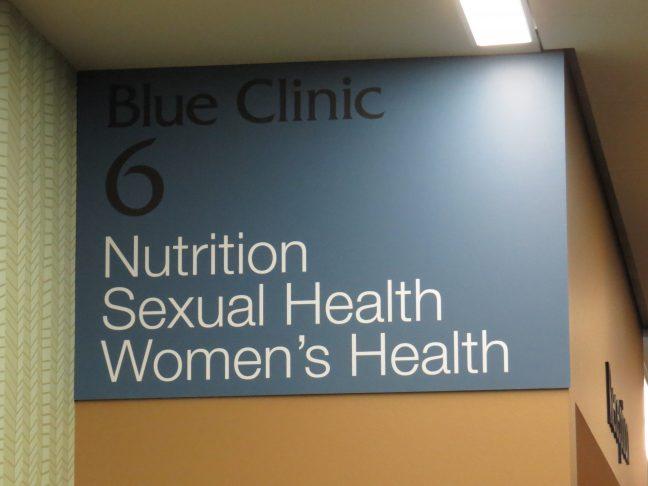The Student Alliance for Reproductive Justice invited Mary Landry to speak at their meeting Tuesday evening on the reproductive healthcare offered at University Health Services.
Landry is the director of the Women’s Health Clinic at UHS and has worked as an OBGYN there since 2005. She discussed some of the historical challenges in providing reproductive healthcare to University of Wisconsin students and elaborated on the unique solutions her department has engineered.
One of the challenges Landry found was the disparity in waiting periods for appointments addressing different health concerns at UHS. She said things like colds and sore throats are often treated on a same-day basis, but matters like preventive contraception needs are assigned long waiting periods. This has transformed under Landry’s direction in the last five years.
“We as a broader community and as a nation make women wait to talk about what they need related to contraception,” Landry said. “What we’ve brought into women’s and sexual health is the same open-access idea that exists in the primary care clinic.”
One of the obstacles to providing same-day care is the rising demand that does not come with an equivalent rise in the number of providers. Landry referenced budgetary constraints, mentioning that the recent increased demand for mental health services has left women’s and sexual health on a lower priority level for increasing staff numbers.
In 2016, Landry recognized an increasing demand for long-term contraception options like the IUD and the arm implant. She attributed this partially to the reproductive health anxiety that many felt upon the arrival of President Donald Trump’s administration.
This influx in patients led to innovation in the way patients received care. The Women’s Health Clinic at UHS adopted an electronic consultation system that provides all of the necessary information about contraceptive procedures to patients. This renders an in-person consultation unnecessary, saving students time and freeing up care providers for more essential services.
“We were poised and ready to meet the increased volume when Trump was elected and everyone was afraid that we were going to lose contraception access,” Landry said.
Students fund many UHS services with segregated fees, which Landry sees as a huge benefit to access. She explained that traditional billing model clinics that rely on insurance for funding are able to innovate far less in their approaches to care, and often have more barriers to access.
While IUD insertion procedures are not free, Landry believes that the women’s health department has a strong grasp on navigating insurance paperwork with their patients. Difficulties with insurance can be a barrier to access, but she says that the electronic consultation system has helped to shrink the gap.
“We’ve doubled our IUD insertion numbers and tripled our IUD consults,” Landry said. “Single-visit IUD insertion is revolutionary. On a national level, it’s the right thing to do, but it’s hard to implement. You need a system that is committed to doing it.”
The Women’s Health Clinic has also increased the accessibility of other forms of birth control through the implementation of ‘telehealth’ contraception, which allows patients to input health data electronically and then consult care providers by phone call to set up a prescription. ‘Telehealth’ has increased the clinic’s capacity and has received a flood of positive reviews from patients, according to Landry.
In addition to oral contraception and long-term methods, the clinic has been involved in efforts to increase access to emergency contraception. Last year, Landry requested $4,000 in funding for emergency contraception for students who had experienced sexual assault.
This prompted campus-wide conversations about making emergency contraception more affordable for all students. As of this October, EContra EZ, a generic version of Plan B, became available at Memorial Union and Union South for $13, which is more affordable than the typical cost of Plan B that ranges from $30 to $60.
Labs and sexually transmitted infection screenings are free at UHS, as are consultations. Landry said that while access is steadily improving reproductive healthcare at UW, the limited number of women’s health providers remains a barrier. Still, more innovation is coming to the Women’s Health Clinic: the former pharmacy on the sixth floor — the same floor as the Women’s Health Clinic — is set to become the new location for the walk-in STI clinic.
“It is going to become a more unified space,” Landry said. “We’re not sure what to call ourselves — sexual health? Women’s health? Reproductive health? Can’t we just get rid of all the labels?”


